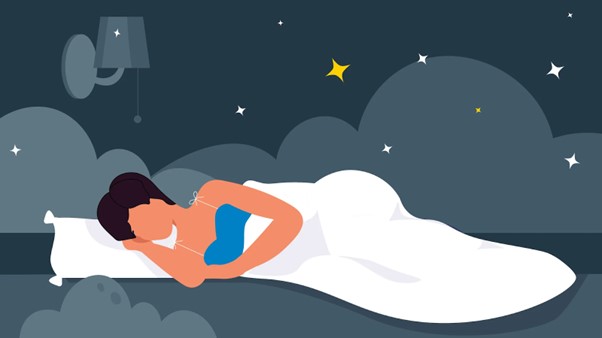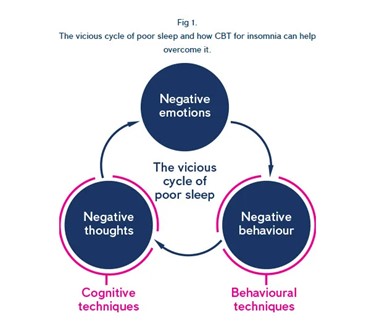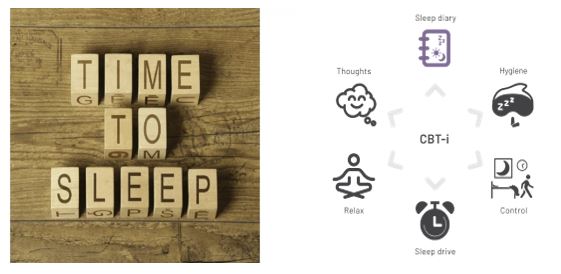Sleep is medicine. This is not a cliche statement. Here is why
Sleep plays an incredibly important role in defining an individual’s mental and physical health. This is because each of us deserve rest. In addition, the rest must be optimal so, our systems truly feel recharged to start all over again. Our bodies and minds yearn for it every day and we must give exactly that. When we fail to do so, it stops yearning for it, starts to growl instead and affects our daily functioning in a way that it invades our personal and professional fronts of life. Sleep regulates our essential biological functions, mental health and overall, well-being to a great extent. This includes going to bed on time, sleeping for at least 6-8 hours, maintaining sleep and waking up feeling fresh over grumpy and groggy. There are various factors that determine a good night’s sleep. Therefore, one must recognise the same and take precautionary actions to prevent Insomnia.
Insomnia: A horrific hindrance due to lack of rest
Insomnia is a sleep disorder that is characterized by making it hard to fall asleep, stay asleep or waking up too early. These are destructive behaviors that disable an individual’s sense of overall well-being.
This can include symptoms such as:
- Sleeping difficulty
- Lack of attention and focus
- Headache
- Irritability
- Depression
- Slowness in activity affecting productivity
Hence, insomnia causes physical, psychological and mental obstacles in the following days post lack of sleep.
What is CBTI and how does it help one in navigating through sleep issues?
Cognitive Behavioral Therapy for Insomnia, abbreviated as CBT-I, is a treatment designed to help individuals address the anxiety associated with difficulty in falling asleep or feeling well-rested. This can lead to various problems that interfere with daily life, such as becoming irritable the following morning, which can negatively affect all areas of existence, including decreased productivity at work, strained relationships with family and friends, and challenges in maintaining focus. Although this may seem straightforward, over time, it can escalate into serious issues, resulting in both physical and mental health complications in the long term.
CBTI Sleep therapy: Destructs all facets of an individual’s life
This is the most annoying aspect and the most difficult to fix. This is due to the fact that, in reality, the ineffective metaphorical assumptions about not being able to fall asleep translate into unpleasant behaviors, such as not being able to fall asleep.
There are numerous deserving, noteworthy, and scientifically validated methods for this, including such as the following:
Regulating the stimulus: This technique, which is the corrective component of the overall therapeutic modality in CBT-I sleep therapy, involves taking action against the pre-sleep routines that nearly always have the tendency to break them. This can involve using any device in the bedroom just before bed. This suggests that the sleeping area is being used for a variety of purposes, which leads one’s brain to become accustomed to the idea that bed is not only for sleeping but also for eating or aimlessly browsing through a phone. More trouble falling asleep is implied by this strengthening relationship. Thus, eliminating these connections will progressively enhance the quality of one’s sleep.
Sleep restriction: In CBT-I sleep therapy, this is a more practical strategy for enhancing the quality of sleep. In other words, the ideal perception of sleep is lowered to what actually occurs in order to adhere to it, setting the bar as low as possible. For example, if someone wants to sleep for seven hours but only gets four. Redefining the ideal while maintaining an achievable goal will help address this. This will entail starting with 4 hours and 30 minutes of sleep, and if this is accomplished, progressively increasing the aim to 5 hours and so forth.
When used properly, relaxation techniques can work miracles. This includes a number of methods, such as specific breathing exercises, self-hypnosis, and meditation, which are trained by professionals.
CBTI Sleep therapy: Preaching the importance of sleep
Teaching clients the value of good sleep hygiene and how it improves one’s general well-being is a strong and tangible component of CBT-I sleep therapy. These statistics are presented to the clients in a more methodical manner, providing them with information that will help them make more deliberate efforts to improve their sleep patterns over time. Because it affects and gravitates toward so many aspects of life, sleep is therefore a vital component of a person’s quality of life.
Why CoachForMind?
- Experienced Psychologists: We are a team of licensed RCI-registered clinical psychologists. Our team is well-experienced in various forms of therapy such as CBT, DBT, Narrative Therapy, and other therapeutic techniques such as CBTI sleep therapy.
- Personalized Approach: We are dedicated to treating our clients in the best-suited way, carefully curated as per the client’s needs, and adhering to one-on-one, client-centered therapy.
- Scientific Techniques: Our treatment plans and therapeutic methods are based on highly researched scientific findings such as CBT, DBT, and Narrative Therapy among many other therapeutic techniques used in art therapy counseling.
- Quality service: We at CoachForMind ensure quality services in our treatment regime and therapeutic approaches. Our clients hold most value to us, so we ground our techniques in empathy while maintaining professionalism.
For more information, please visit our website or contact us directly at coachformind@gmail.com







